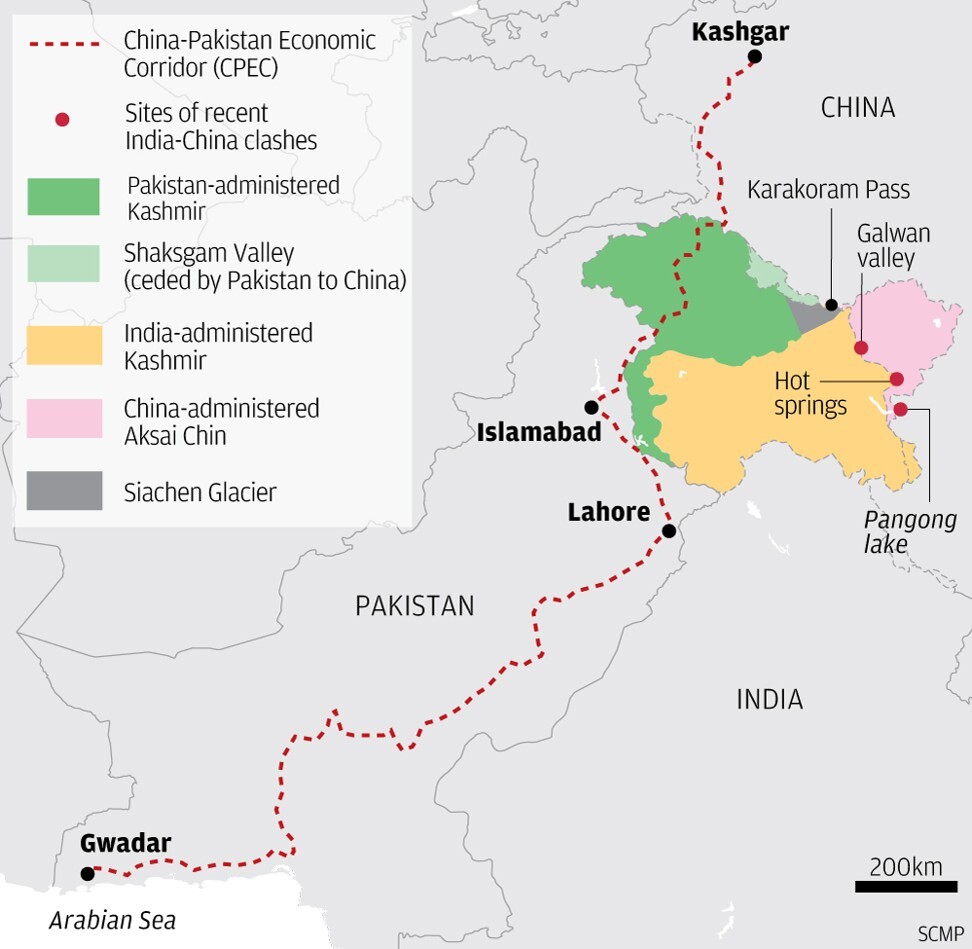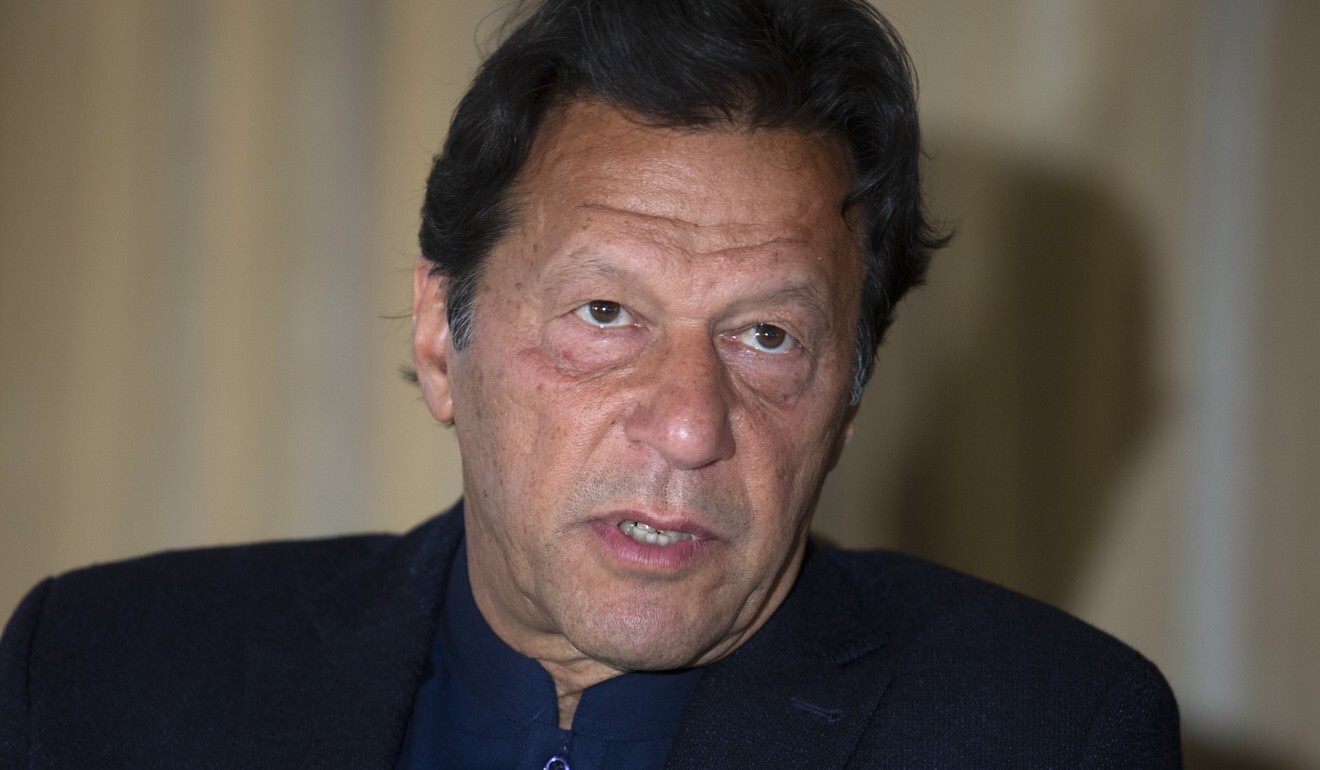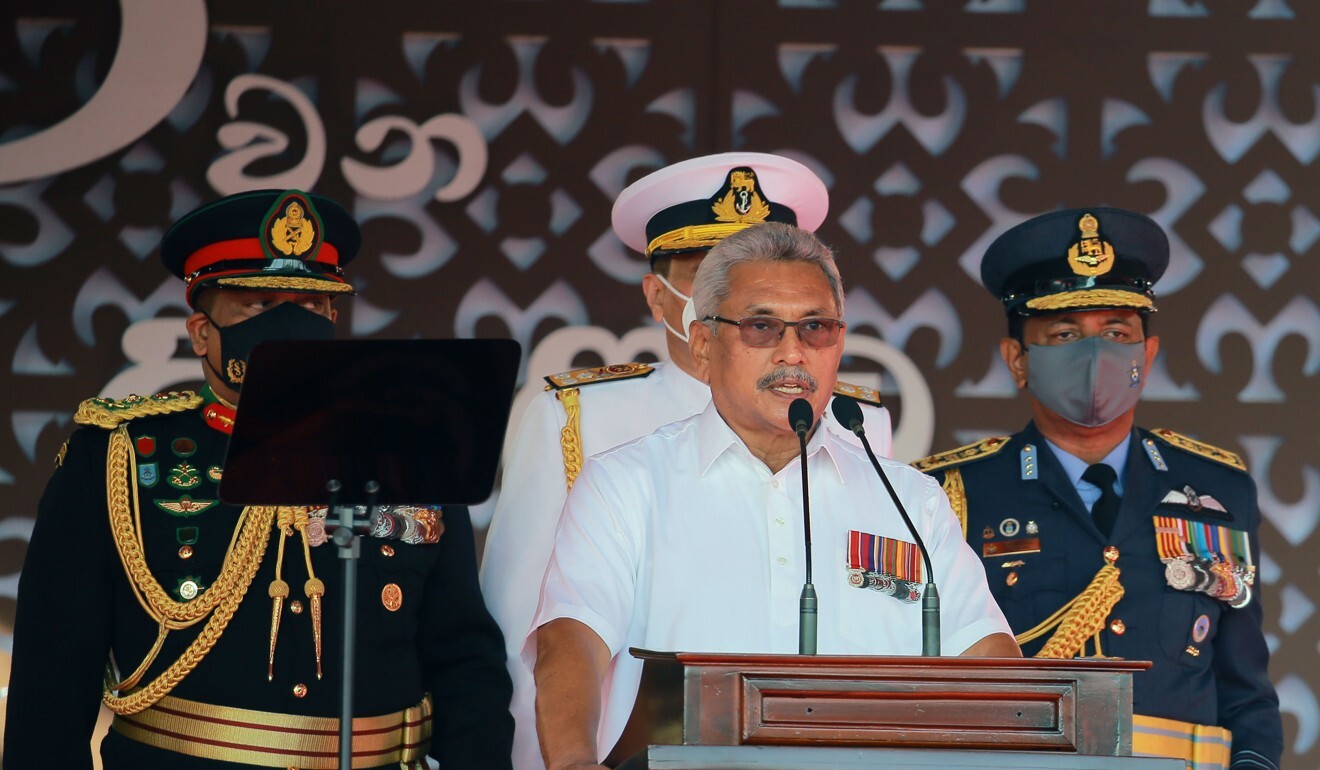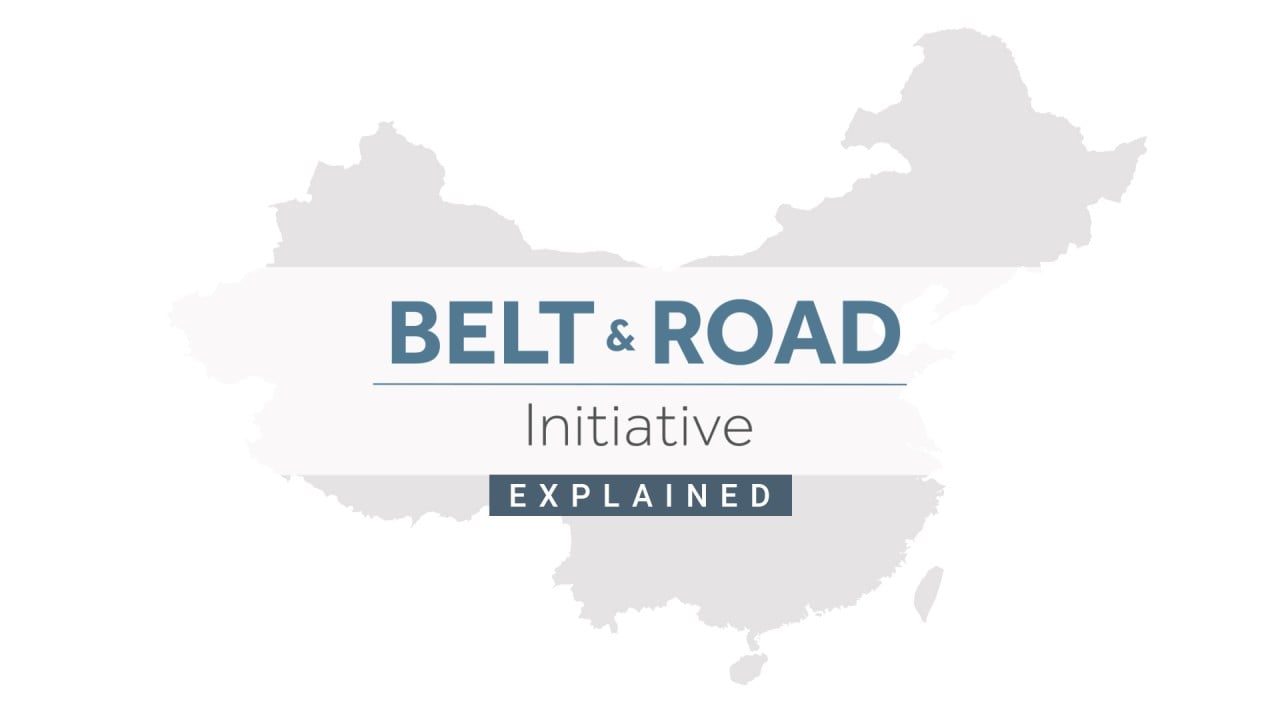
Pakistan’s belt and road offer to Sri Lanka stokes India’s China concerns
- Pakistani leader Imran Khan has urged Colombo to participate in the China-Pakistan Economic Corridor
- ‘Most worrying’ aspect for New Delhi is proposal for Colombo to use Gwadar port, which analysts say could threaten India’s trade and security
On a two-day visit to Colombo last week, Pakistani Prime Minister Imran Khan urged Colombo to participate in the China-Pakistan Economic Corridor, which comprises railways, power plants and the deepwater Indian Ocean port of Gwadar. The CPEC is aimed at offering China a major overland route from its western frontiers to the world but critics have accused it of being a debt trap for Islamabad.
India has kept a close watch on the visit but has not commented on it.


Bhatia, now a distinguished fellow at the Mumbai-based think-tank Gateway House, said: “The facet to explore is whether Pakistan and Sri Lanka are planning to enhance maritime or naval connectivity under Chinese inspiration. If so, this should worry New Delhi.”
China and Sri Lankan trade is worth over US$3.6 billion and between 2005 and 2017 Beijing invested US$15 billion in infrastructure development in Colombo. The pair have a long history of defence cooperation.
Is China behind mystery Kashmir ceasefire between India and Pakistan?
Rival neighbours India and Pakistan last week in a rare joint statement said they would observe a ceasefire along their de facto border known as the Line of Control, after years of violations.
Still, China’s growing presence in Sri Lanka is a cause for concern for India.
China currently runs Sri Lanka’s Hambantota port under an agreement made in 2017 to cover Colombo’s debts to Beijing. Several years ago, Colombo chose to co-develop and operate with China the Colombo International Container Terminals (CICT) in a section of the country’s largest port, Colombo port.
To appease India’s concerns, the government agreed to develop the east terminal of Colombo port with New Delhi and Tokyo but last month it seemed to have changed its mind according to minutes released from a cabinet meeting.

George Cooke, a former Sri Lankan diplomat currently researching the country’s diplomatic history, said Sri Lanka could benefit from cooperation with the Gwadar port by offering special packages to international shipping lines for the use of facilities in both Colombo and Gwadar ports, especially to vessels coming from East Asia.
“Though it is an attractive proposal it needs to be looked at more seriously by experts involved in the port sector,” he added.
But Ganeshan Wignaraja, a non-resident senior fellow specialising in trade, investment and regional integration at the National University of Singapore, said the volume of trade between Sri Lanka and Pakistan had remained static at around US$400 million for many yearsas neither side had much to sell to the other.
“The CPEC can only be a viable option for Sri Lanka as a long-term prospect if the volume of trade and investment between the two sides rises substantially in future. But given the state of the economy in Pakistan and Sri Lanka, I don’t see that happening in a hurry,” said Wignaraja.

02:35
Belt and Road Initiative explained
CLOSER TIES?
But in recent years, Sri Lanka’s Muslims – who make up about 10 per cent of the 21.8 million population – have reported being subject to increasing violence by Buddhist nationalists.
In the past year, Sri Lanka has carried out forced cremations of all those who have died of Covid-19, including Muslims, even though Islam requires them to be buried. Colombo agreed to stop the practice after Khan’s visit.
Will a new road between China and Pakistan lead to a military boost against India?
This was seen by analysts as a way to shore up support for Sri Lanka at the ongoing United Nations Human Rights Commission session in Geneva, which is to discuss a resolution for “war crimes” against Sri Lanka in its fight against the LTTE.
Both Pakistan and India are in the 47-member United Nations Human Rights Council that will decide on the resolution on March 23. If the resolution is approved, the resulting sanctions will damage Sri Lanka’s international reputation but also put additional pressure on its economy, which is under severe strain due to a drastic fall in tourist traffic and global trade.

02:24
Pakistan hosts joint naval drills including the US, China and Russia
Colombo has asked Islamabad to help convince the 14 Muslim countries in the council to reject the resolution. It also hopes for support from both China and Russia, both council members that have backed Sri Lanka in the past.
While laying out the red carpet for the Pakistani prime minister last week, Sri Lanka also signalled that it was mindful of India’s views. It cancelled a planned address by Khan to the Sri Lankan parliament and did not sign a defence agreement with Islamabad as many thought it would.
Said Pradeep Kaushiva, a retired vice-admiral of the Indian Navy: “Though we must keep a close watch on it, I am reasonably confident that Sri Lanka will not do anything to jeopardise its ties with India.”

